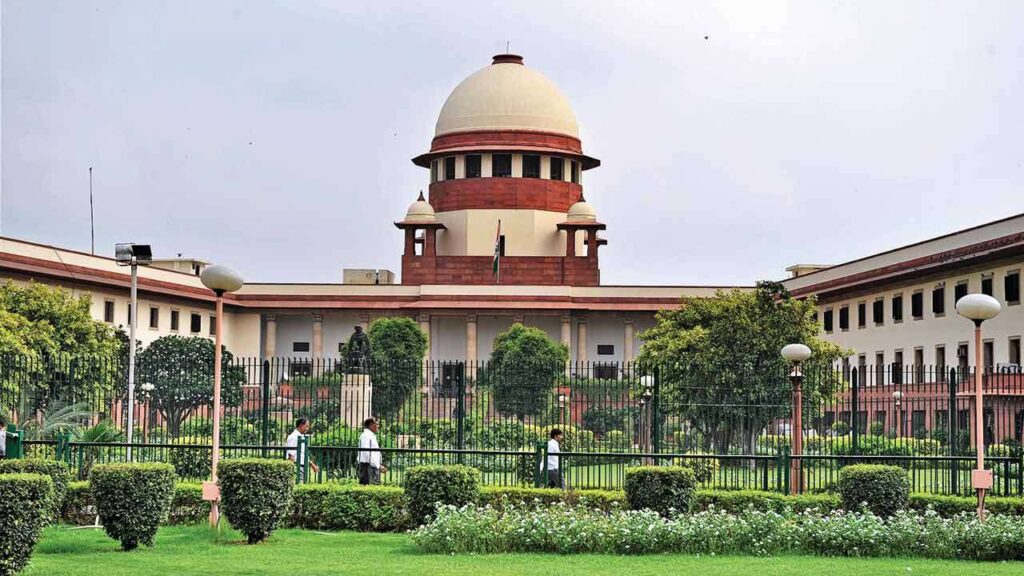Rakia Imran
On February 21, a Division-Bench comprising Justices B.R. Gavai and K.V. Viswanathan of the Supreme Court ruled that the National Medical Commission’s requirement for MBBS admissions—that candidates with disabilities must possess “both hands intact, with intact sensation and sufficient strength”—violates constitutional principles and is arbitrary.
In the present case, the bench was hearing an appeal against the Punjab and Haryana High Court’s decision, which had dismissed the appellant’s plea seeking admission to the MBBS course on account of his disability. The appellant, who suffers from a 50% locomotor disability characterized by a club foot in the right lower limb and phocomelia affecting the left middle and ring fingers through the middle phalanx, as well as the right middle and index fingers through the middle phalanx, was deemed ineligible for a medical course by the Assessment Board. Additionally, he has a 20% speech and language disability, bringing his overall disability to 58%. Given these circumstances, the Supreme Court directed that a specialized functional assessment be conducted by a five-member Doctors’ Committee from AIIMS, which would also include Professor Dr. Satendra Singh as one of its members.
As the proceedings drew close to a conclusion, the Court found it necessary to highlight a key issue. In its ruling on October 15, 2024, in Omkar Ramchandra Gond case, the Court had ordered the NMC to replace the outdated guidelines of May 13, 2019, with new regulations concerning the admission of students with specified disabilities under the RPwD Act for MBBS courses. Furthermore, the Court had directed the NMC to incorporate the recommendations of the Ministry of Social Justice and Empowerment, communicated on January 25, 2024, into the revised framework.
Following this directive, the NMC, during the hearing of Om Rathod case, assured the Court that it would establish a committee of domain experts to implement the Court’s directives in Omkar Ramchandra Gond. Taking cognizance of this assurance, the Court stipulated that the committee should include persons with disabilities or experts proficient in disability rights. The Court also underscored the importance of ensuring that the revised guidelines align with the principles articulated in relevant judgments.
The Guidelines regarding admission of students with “Specified Disabilities”, which constitute Appendix H-1 to the Graduate Medical Education Regulations (Amendment), 2019, stated one of the conditions to be as, “Both hands intact, with intact sensations, sufficient strength and range of motion are essential to be considered eligible for medical course.”
Declaring a specific eligibility condition unconstitutional and inconsistent with the Rights of Persons with Disabilities Act, 2016, the Supreme Court intervened to secure the admission of a disabled petitioner into the MBBS program at Government Medical College, Sirohi, Rajasthan. In the judgment authored by Justice Viswanathan, the Court criticized the practice of assessing disabilities through a uniform standard. The ruling reaffirmed that reasonable accommodation must be adaptive and responsive to the needs of each candidate rather than adhering to an inflexible framework.
The Court held “In our view, this prescription of “both hands intact…” is completely antithetical to Article 41 of the Constitution; the principles enshrined in the United Nations Convention on the Rights of Persons with Disabilities and the salutary provisions of the RPwD Act. It also indicates a classification which is overbroad and glorifies ‘ableism’. It propagates that persons with typical abilities and with faculties similar to what the majority may have or somehow superior. This is precisely what the Directive Principles of State Policy, the United Nations Convention and the RPwD Act abhor.”
As per Article 41 of the Indian Constitution, the State has a duty to make provisions for employment, education, and public assistance for individuals who face economic distress due to unemployment, old age, illness, or disability, subject to its financial resources and developmental constraints.
This judicial verdict scrutinized an employment condition that placed restrictions on individuals with physical abilities, declaring it to be against the principle of equality. The Court emphasized that such requirements weaken the constitutional commitment to equality and fail to uphold the concept of “reasonable accommodation,” which is essential for fostering an inclusive society. Additionally, the judgment criticized such conditions for perpetuating ableism—an ideology that structurally disadvantages persons with disabilities by maintaining a preference for able-bodied individuals in professional and social life.
The Court will now examine whether the National Medical Commission (NMC) has complied with its previous assurances regarding the issuance of revised guidelines, as discussed in hearings held in March.
The Court has scheduled a hearing on March 3, 2025, to review whether the NMC has implemented the revised guidelines as directed in Omkar Ramchandra Gond and Om Rathod. Furthermore, the NMC has been instructed to submit an affidavit before the hearing date, providing a detailed update on the status of the revised guidelines and outlining the measures taken to comply with the Court’s directives.
Case Name: Anmol v. Union of India & Ors.
Case Number: Civil Appeal No. 14333 of 2024
Bench: Justices B.R. Gavai and K.V. Viswanathan
Click here to access the Order.
Instagram: Click here.
LinkedIn: Click here.
For Collaboration and Business: info.desikaanoon@gmail.com

